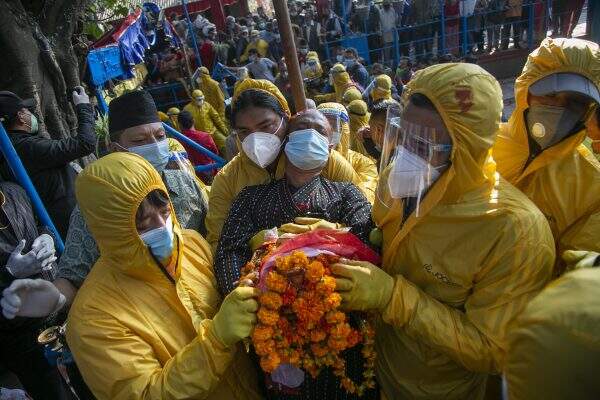
Fans of Nepali literature celebrate Dashain with new novels as a way to escape COVID-19.
Vijaya Dashami, another name for Dashain, is one of the biggest Hindu holidays observed in Nepal. It’s a period when people leave heavily populated cities like Kathmandu and flock back to their home areas. In Nepal, purchasing new clothing, feasting on a variety of delicacies, visiting temples, and spending time with family are customary ways to celebrate Dashain. However, book enthusiasts are also known to purchase new books. Publishers publish new books every year, and they organize large book fairs and festivals in the run-up to Dashain.
Even though COVID-19 interrupted a lot of this year’s celebrations, a lot of Nepalis were observed commemorating Dashain in different ways. For instance, readers mentioned on social media their recent book purchases.
Dashain festival is also celebrated by Nepalis residing overseas. Krishna Bajgai, a Nepali writer residing in the United Kingdom, told Global Voices over the phone, “As part of my Dashain celebration with books, I plan to read a few new Nepali books I have recently collected.” He continues, “For a writer, what could be more joyful than new books during Dashain—nice food, fresh clothes, bringing in something new for the house, and enjoying time with loved ones? Dashain is everywhere!
This Dashain festival has seen a lot of new publishing in the Nepali book market, including translations.
This year, Book Hill, a Nepali publisher, translated three books: John Steinback’s “Of Mice and Men,” which was translated into Nepali for the first time; Iravati Karve, the first Indian female anthropologist, wrote “Uganta: The End of an Epoch,” in English; and Malla K. Sundar, a Nepalese author whose original language was Nepal Bhasha.
Sujit Mainali translated “Uganta: The End of an Epoch.” Ganess Poudel was the translator of “Of Mice and Men.”
In academic institutions and worldwide periodicals, Nepali literature is not receiving enough attention. Nepali literature is not included in the majority of prominent university literature curriculum, and as a result, a significant portion of Nepali literature is not included in prestigious magazines and anthologies.
